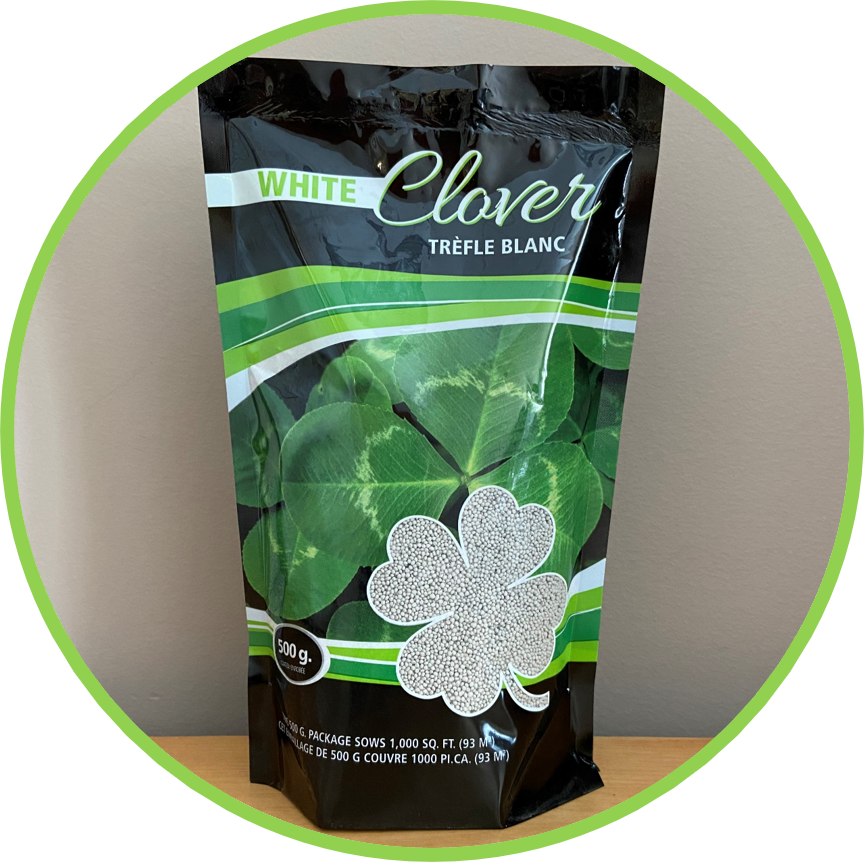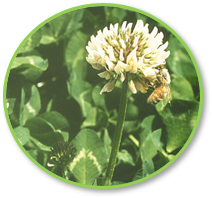Discover the Benefits of Planting White Clover
Are you ready to transform your lawn into a lush, vibrant oasis? Here’s everything you need to know about planting white clover—when, where, how, and why it’s the perfect choice for your outdoor space!
❖ Why Choose a White Clover Lawn?
- Natural Enrichment: Boosts soil nitrogen, reducing your need for chemical fertilizers.
-
Low Maintenance: Less mowing and watering, giving you more time to enjoy your yard.
- Weed Control: Naturally outcompetes pesky weeds.
- Eco-Friendly: Attracts pollinators and is pet-friendly.
- Erosion Control: Keeps your soil where it belongs.
- Pest Resistance: Naturally deters pests, making maintenance a breeze.
- Soil Structure: Deeper taproot system aids in breaking up soil compaction.
❖ When Should You Plant White Clover?
- Early Spring (late March or April): Get a jumpstart on growth!
- Late Summer: Perfect timing for a healthy boost.
- Early Fall: Ideal temperatures (10-21°C) ensure a thriving lawn.
❖ Where Can You Plant White Clover?
- Versatile Locations: Perfect on its own or mixed with other turf types.
- Soil Preferences: Thrives in most soil types that are well-drained with adequate moisture.
- Sunlight: Enjoys full sun or partial shade — wherever you need it!
❖ How to Prepare Your Lawn for Planting White Clover
- Mow Low: Set your mower to the lowest setting and give your lawn a trim.
- Clean Up: Remove any thatch and aerate your soil for optimal growth.
- Spread Evenly: Use a hand-held or push broadcast spreader for even seed distribution.
- Rake It In: Ensure excellent seed-to-soil contact by raking once more.
- Water Wisely: Keep the soil surface moist by watering twice daily for the first two weeks.
❖ How Much White Clover Seed Do You Need?
- Coverage: 1 lb. covers 500 sq. ft.
- Overseeding: Use 0.25 to 0.5 ounces per 1,000 sq. ft.
❖ How Long Until You See Results?
- Germination Time: White clover typically sprouts within 5-14 days — watch your lawn come to life!
❖ Why Choose Speare Seeds White Clover?
- Exceptional Varieties: We offer a range of sizes, including miniature small leaf clover.
- Coated Seeds: Our coated clover seeds enhance germination and visibility for easy spreading.
- Canadian Owned: We're committed to providing superior customer service and support.
- Turf Specialists: Have questions? Our team is here to help you every step of the way!

Frequently Asked Questions
What are the benefits of growing white clover in your lawn?
❖ Clover enriches soil, reduces fertilizer needs, is drought-resistant, and creates a low-maintenance, lush lawn. Plus, it boosts your lawn’s resilience and sustainability!
How tall will white clover grow?
❖ White clover can grow 6 to 12” tall but thrives when mowed.
How often should you mow a white clover lawn?
❖ Mow about once a month or when it reaches 3-6 inches in height. Keeping it slightly taller helps outcompete weeds!
Does white clover attract bees?
❖ Yes, clover attracts bees because of its white flowers, which is great for pollination! If that’s a concern, try Miniature Small Leaf Clover, which produces fewer flowers, or mow before flowering to minimize bee activity.
Is white clover invasive?
❖ Not typically. Clover spreads gently and won’t outcompete your grass. Regular mowing and maintenance keep it in check.
How do you care for white clover in winter?
❖ Clover is hardy and survives winter well. It may go dormant but will regrow in spring. Consider overseeding in spring for any bare spots.
How does white clover handle foot traffic?
❖ Clover can withstand moderate foot traffic and recovers quickly. For high-traffic areas, mix it with grass or try Miniature Small Leaf Clover for added resilience.

Will white clover harm my dog?
❖ White clover is NOT toxic to dogs. It’s a common plant that generally does not pose a risk to your furry friend.

Comments